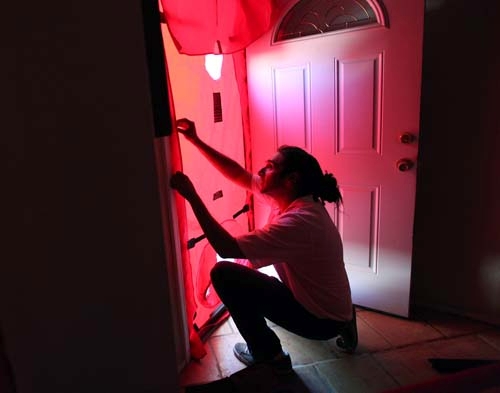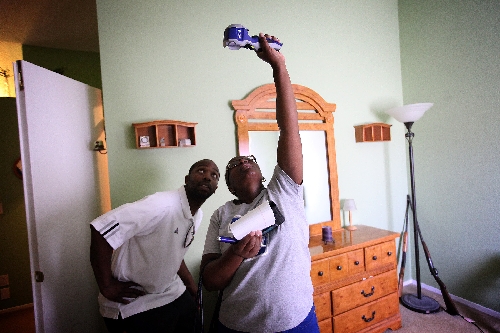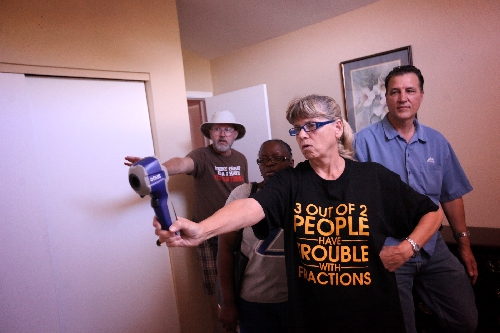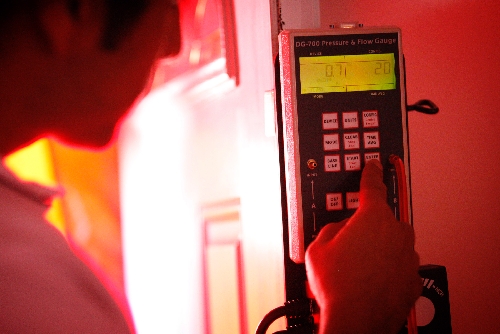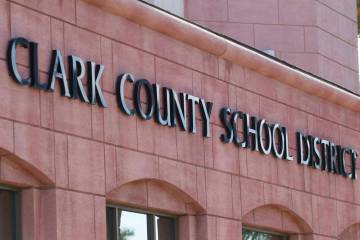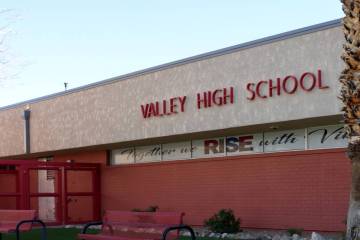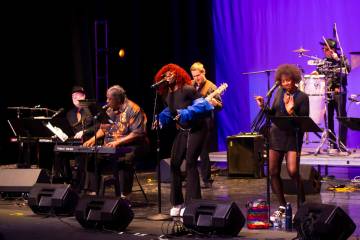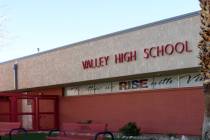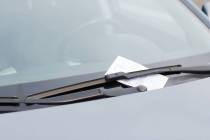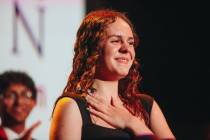Teachers learn to test for energy efficiency
Her T-shirt hints at her profession.
"3 out of 2 people have trouble with fractions," reads the print across Wanda Mallard's chest.
She's a Southeast Career Technical Academy math teacher with 31 years under her belt. But she still works at honing her classroom skills. This week, she took on the role of student to find new ways to reach her own.
"We've got to adapt, or we're going to be screwed," she said while eight other Clark County public school teachers secured the perimeter of a Henderson home, tightly closing every window and door in preparation for pressurizing the 20-year-old building.
A fan was sealed in the main doorway to create the pressure equivalent of a 20 mph wind hitting the house from every direction.
Across town, nine other teachers were doing the same thing at another home, beginning an audit of the building's energy efficiency under the direction of a HomeFree auditor. Earlier this week, they built a stationary bicycle to power appliances and undertook other tasks in a first-ever voluntary training for a niche field to work into their lessons - home energy efficiency and conservation.
"So many jobs are opening in this field," said Mallard, aware she is educating the workforce of tomorrow.
She will work what she has learned into lesson plans, such as figuring out the energy consumption of appliances and having students assess their own family's energy consumption through six components: lighting, appliances, hot-water systems, building envelopes, heating and cooling.
Mallard and her husband, Don Mallard, an English teacher at the same school, will be applying what they learn at home. For instance, an unused room shouldn't be closed off and the air-conditioning vent closed. That is actually less efficient.
After the house's pressure was decreased, teachers used an infrared gun to find hot spots where outside air was seeping in through electric outlets, recessed ceiling lights and under doors.
Like giddy schoolchildren, teachers clamored for their chance at the Ghostbusters-like gadget with a display panel of varying oranges and reds.
That fervor is how science teacher Jason Smith knew the work would appeal to his fifth-graders at Ries Elementary School in the southwest valley. He especially liked the idea of building a miniature house out of paper. Students then would have a budget to buy insulation, reflective siding and trees to make their homes as efficient as possible. To test which house was best, a light would be shone on each home while a thermometer placed inside would measure the change in temperature.
"I can't wait for kids to go home and tell mom, 'You got to change that light bulb,'" Smith said.
The weeklong academy was a collaboration with the Clark County School District, said Andrew Highison, green energy coordinator for Envirolution, a nonprofit dedicated to evolving education for green industries. The training will be taken to Reno schools and probably expanded locally, he said.
Contact reporter Trevon Milliard at tmilliard@reviewjournal.com or 702-383-0279.



